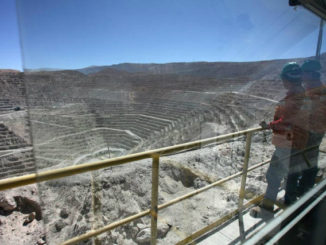
SANTIAGO – The unemployment rate in Chile stood at 6.9% during the January-March mobile quarter of 2019, according to figures provided by the National Statistics Institute.
Thus, according to the information collected by the National Employment Survey (ENE), the unemployment data in Chile did not change with respect to the same period of 2018 and rose 0.2 percentage points from the previous quarter (December-February).
“This result was due to the 1.1% increase in the labor force, which was slightly lower than the variation of the employed (1.2%),” explained the statistical agency. The sectors of health activities (8.2%), education (4.6%) and other service activities (8.9%) were affected by the rise in the number of employed persons, while by occupational category, mainly, salaried workers formal (2.6%) and own-account workers (3.2%).
The informal employment rate was 28.6%, decreasing 0.5 pp. in twelve months. In the same period, informal workers decreased by 0.7%, mainly due to informal salaried workers (-6.8%). Meanwhile, the de-seasonal unemployment rate fell 0.1 pp., Compared to the previous moving quarter, standing at 6.8%.
The female unemployment rate was 7.9%, and did not change in twelve months, as a result of the 1.0% rise in the labor force, slightly lower than the increase of 1.1% in the employed. On the other hand, the unemployed grew 0.6%, affected only by the unemployed (4.1%), since those seeking work for the first time fell 19.0%. Women outside the labor force expanded 2.4%, driven by the usual inactive (3.0%) and potential (0.5%).
“It is recalled that the figures derived from the ENE must be analyzed with caution, since currently the process that leads to the results contains limitations that can only be eliminated gradually in the coming months, through the updating of the framework of samples with which the houses are selected, which began to be implemented as of November 2018 ”
In turn, the unemployment rate of men was 6.1%, down 0.1 pp. in twelve months, as a consequence of the 1.1% increase in the labor force, less than the 1.2% increase in the employed population. It should be noted that the unemployed did not register annual variation, for the first time in the current survey. Men outside the labor force grew 3.7%, affected by the habitual inactive (3.3%) and the inactive potentially active (7.5%).–MercoPress



